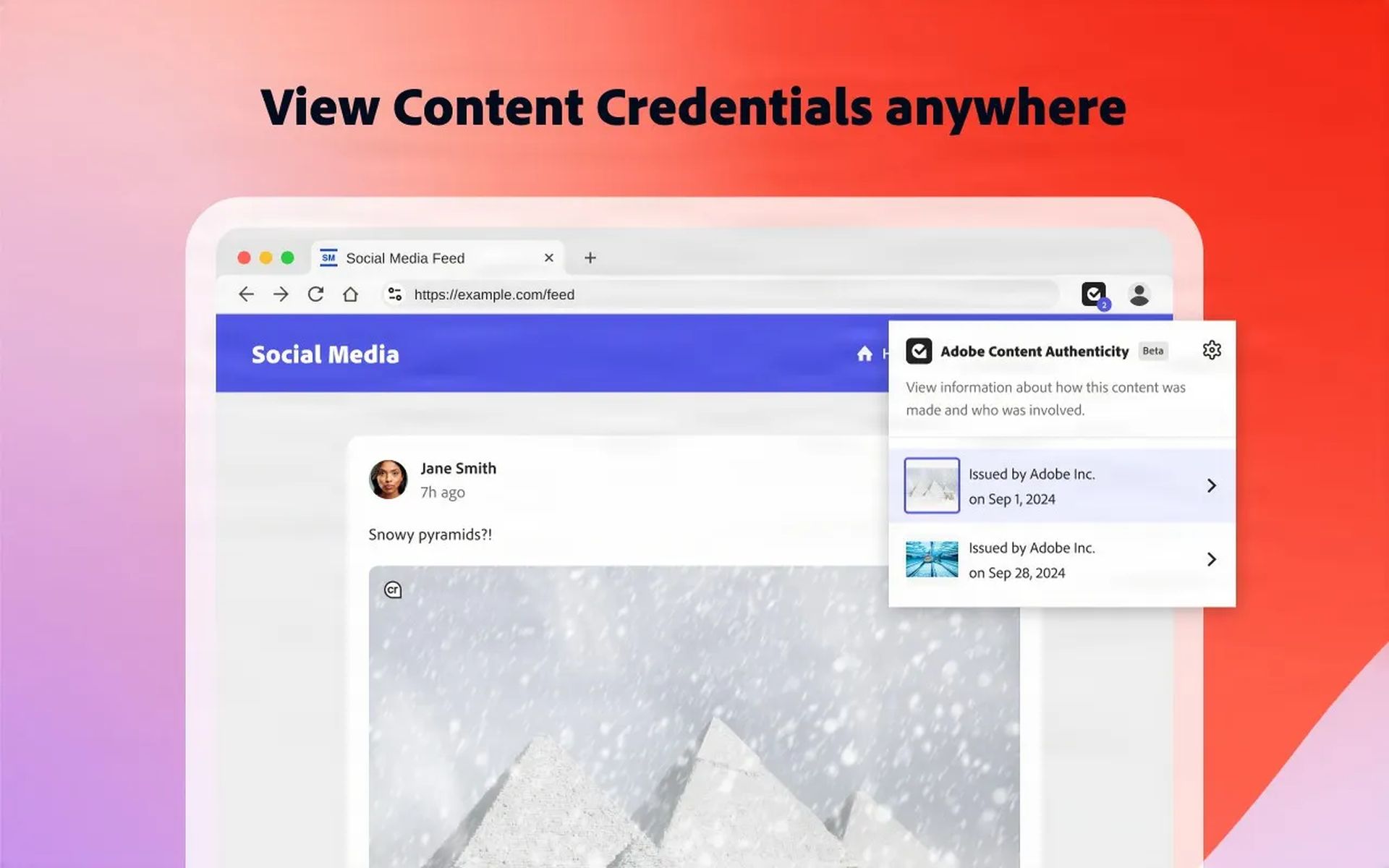Adobe is taking another step in supporting creative professionals with its new Content Authenticity web app, designed to help creators protect, attribute, and opt-out of AI training for their digital work.
This free tool protects how creatives manage and safeguard their images, videos, and audio content in the age of AI.
The Content Authenticity web app is part of Adobe’s expanded Content Credentials initiative, which allows creators to embed important information, such as their name, website, or social media profiles, into their digital work. More importantly, it gives creatives a streamlined way to label their work with a “do not train” tag, helping them opt out of generative AI models that scrape the internet for content.
What does the Adobe Content Authenticity web app offer?
The web app enables creators to quickly apply attribution data across multiple files at once, saving time compared to manually embedding credentials into individual pieces. This attribution includes essential details like creator names, links to portfolios, and more.
Adobe recognizes the concerns many creatives have about their work being used to train AI models. The web app allows users to opt-out their content from AI training, ensuring that their images, videos, and audio are protected from being used without permission.
The app is compatible not only with Adobe’s tools like Photoshop and Lightroom but also with any other digital content, making it a powerful hub for creators to manage their digital assets across platforms.
Adobe has integrated advanced technologies like digital fingerprinting and cryptographic metadata, which help restore Content Credentials even if someone tries to remove them. This adds an extra layer of protection for creatives worried about their work being misused or uncredited.
In addition to creating protections, the app also includes a feature to inspect Content Credentials on websites. Creators and viewers can check if content has been tagged with the metadata, even on platforms that don’t natively display it. A Google Chrome extension is also in beta, allowing users to directly inspect credentials from a webpage.
Addressing creators’ concerns in the AI era
Adobe has been proactive in addressing the growing concerns within the creative community about AI’s impact on intellectual property. The Content Authenticity web app is launching as part of a broader effort to support creators who want to protect their work from being used without consent.
Houston-based photographer, Alexsey Reyes states:
“There’s a blanket of security I didn’t know I needed as an artist sharing online until looking into the benefits of adding Content Credentials to my art. Using Adobe Content Authenticity is like one of those ‘things I wish I knew when I started’ moments.”
Although Adobe’s AI models, like Firefly, only train on licensed or public domain content, the web app’s protection features are aimed at influencing the broader AI market, encouraging other AI developers to adopt similar ethical standards.
One of the key and perhaps the most important benefits of the web app is its ability to opt creators out of generative AI training en masse, rather than requiring individual submissions to different platforms.
Can true content authenticity be maintained?
While the Content Authenticity web app represents an advancement in protecting digital work, Adobe still faces the challenge of getting more tech and AI companies on board with these protections. Currently, only a few companies, such as Spawning, support these opt-out features.
However, Adobe is actively working to expand industry-wide adoption of Content Credentials and AI protections.
As AI continues to grow, tools like Adobe’s Content Authenticity web app could play a critical role in maintaining ethical standards and safeguarding the rights of creators.

Whether it’s ensuring proper attribution or protecting work from unauthorized AI usage, this web app marks a pivotal moment in digital content management.
Launching in public beta in early 2025, the Content Authenticity web app will be free for all users with an Adobe account, making it more accessible to the creative community.
As artists struggle to find a balance between AI and digital ownership, Adobe’s new tool offers a powerful solution to help them retain control over their work.
Image credits: Adobe





